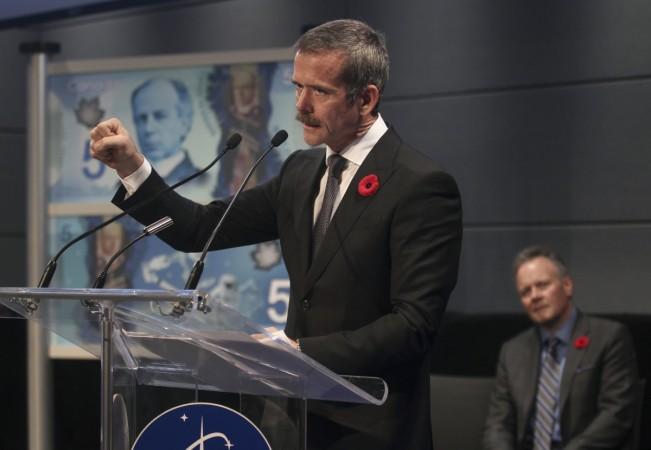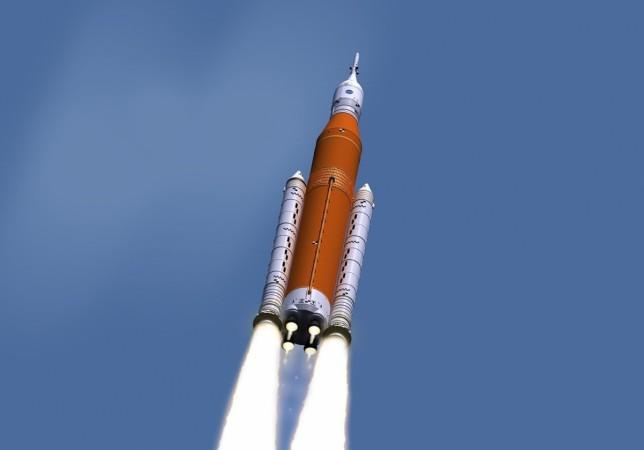
Chris Hadfield, one of the most well known astronauts in modern times, feels that the upcoming generation of engines, under production by NASA, SpaceX, and Blue Origin – the three biggest players in the second space race to Mars– is unlikely to take them to the Red Planet.
Hadfield has spent an astonishing amount of time in space. His first journey happened in 1995, second trip in 2001 and after a third trip to the International Space Station (ISS) in 2013, he retired as an astronaut, reports Business Insider (BI). In an interview with the publication, when asked about what he thinks of the current crop of rockets under production, the ones that are touted to land the first human on Mars, his response was not entirely positive.
"Personally," he said, "I don't think any of those three rockets is taking people to Mars." The three rockets in question is the SpaceX BFR, NASA's Space Launch System (SLS) under production with the help of Boeing, and Blue Origin's Sheppard.
"I don't think those are a practical way to send people to Mars because they're dangerous and it takes too long," adding, rather grimly, "The majority of the astronauts that we send wouldn't make it." this does not bode well for fans of space and those who are actually looking forward to seeing humans settle on Mars in the coming decade.
Elon Musk, the founder of SpaceX has made his intentions clear when it comes to Mars colonisation, saying that his company is going to put boots on the red planet and start to terraform it, starting 2024.

However, Hadfield says, "My guess is we will never go to Mars with the engines that exist on any of those three rockets unless we truly have to," he said. On the engines, Hadfield's main point of contention is the fuel that the rockets of the upcoming generation are going to use. As of now, solid fuels plus liquid oxygen is used and that will simply not cut it.
NASA's SLS is still under production and is not going debut any time before the mid- 2020, will be, according to the report, will use a hydrogen plus solid fuel propellant. Blue Origin is also looking at hydrogen. SpaceX wants to burn methane mined on Mars and use it as fuel in their rockets.
Having said that, Hadfield does not doubt that these rockets will actually make it to Mars. It is the human component that makes the journey risky.
"We could send people to Mars, and decades ago. I mean, the technology that took us to the moon back when I was just a kid, that technology can take us to Mars," he explained, "But it would be at significant risk," he said.
"The majority of the astronauts that we send on those missions wouldn't make it [to Mars]. They'd die. Because the technology is still quite primitive."
The story is based on a conversation that Hadfield had with Business Insider.














